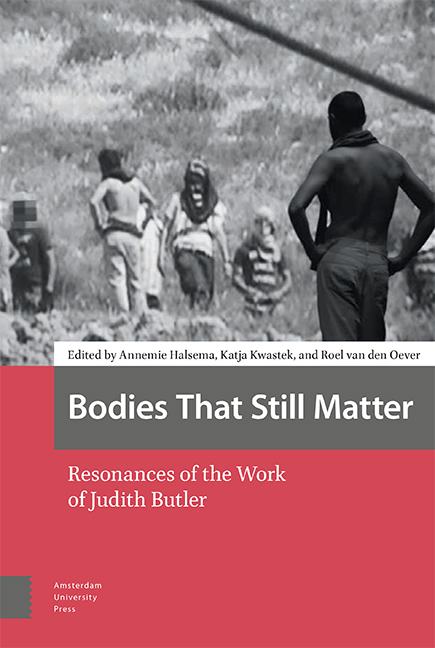What’s in a Name?: Don’t Ask, Don’t Tell and Private Romeo
Published online by Cambridge University Press: 27 May 2021
Summary
Abstract
The film Private Romeo shows two male cadets falling in love as they speak the lines of Shakespeare's Romeo and Juliet. While intended as an affirmative depiction of gay love without any homophobia, the film for three reasons has the opposite effect. First, whereas the film's main intertext (Shakespeare's play) and key historical context (Don't Ask, Don't Tell, here read through Butler's Excitable Speech) foreground the significance of naming desire, no character in Private Romeo actually speaks the word “homosexuality.” Second, the image of two young men kissing is superseded by the primacy of the Shakespearean characters and their heterosexual romance. Third, even if the spectator chooses to ignore these first two reasons and takes Private Romeo as a representation of homosexuality, this can only be achieved by assuming a homophobic context for the portrayed romance.
Keywords: homophobia, homosexuality, intertextuality, narratology, William Shakespeare, speech
Authorial Intentions
Both in interviews and on the commentary track on the DVD, the director and actors of Private Romeo (Brown 2011) are transparent and of one mind in their conception of the film. When eight male cadets are left behind at a military academy because they did not qualify for navigation exercises, two of them, Sam and Glenn, fall in love. The lovers and the other cadets voice their thoughts and emotions by solely speaking lines from William Shakespeare's Romeo and Juliet ([1597] 2009), the play they are reading in class. The film thus combines a contemporary representation of homosexuality on the visual track (two male bodies kissing) and an early-modern declaration of heterosexuality on the audio track (the cadets verbalize their desire as Romeo and Juliet). The dialogue is to be understood as giving expression to, as being instigated by, the cadets’ intentions and feelings. In the words of director Alan Brown: “The actors and I always worked from the foundation of their ‘cadet’ characters. … So the concept, which everyone embraced, was that of teenage boys using Shakespeare’s language to express what couldn't be expressed in their own everyday language” (Brown 2012b).
This concept has three diegetic implications.
- Type
- Chapter
- Information
- Bodies That Still MatterResonances of the Work of Judith Butler, pp. 77 - 88Publisher: Amsterdam University PressPrint publication year: 2021



